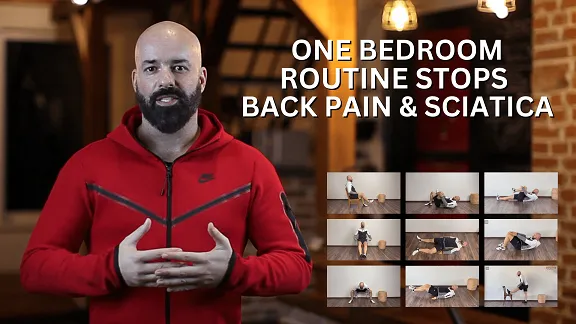Are you interested in pursuing a successful career in the healthcare industry? Look no further, as this article provides you with valuable insights on how to build a thriving career in healthcare. From choosing the right educational path to acquiring practical experience, this guide will equip you with the necessary tools and knowledge to carve out a successful path in this ever-growing field. Whether you aspire to become a doctor, nurse, therapist, or any other healthcare professional, this article is your roadmap to success.

- Choose the Right Healthcare Field
- Obtain Relevant Education and Training
- Develop Strong Technical Skills
- Cultivate Interpersonal and Communication Skills
- Gain Practical Experience
- Acquire necessary certifications and licenses
- Build a Professional Network
- Continuously Learn and Adapt
- Embrace a Strong Work Ethic
- Seek Career Guidance and Mentorship
Choose the Right Healthcare Field
When embarking on a career in healthcare, it is essential to start by researching different healthcare fields. There are a wide variety of options available, ranging from nursing and medicine to physical therapy and medical coding. Take the time to explore these fields and determine which aligns best with your interests and skills. Consider what aspects of healthcare you are passionate about and what type of work you would enjoy doing on a daily basis.
In addition to considering your own interests and skills, it is also important to evaluate the job market and demand for different healthcare fields. Look at the current trends and projections for job growth in various areas of healthcare. This will help you make an informed decision about which field has the most promising future prospects. Speak with professionals already working in the field to gain insight into the job market and potential career opportunities.
Having conversations with professionals in the field can provide valuable guidance and firsthand information about the realities of a career in healthcare. Reach out to individuals who are already working in the specific healthcare field that you are interested in and ask if they would be willing to chat with you about their experiences. This will give you a chance to ask questions, gain insight, and potentially build connections within the industry.
Seeking guidance from career counselors or mentors can also be a beneficial step in choosing the right healthcare field. These individuals have experience and knowledge in helping individuals navigate their career paths. They can provide valuable advice, assessments, and resources to assist you in making an informed decision. Career counselors can help you identify your strengths and interests and match them with appropriate healthcare fields.
Obtain Relevant Education and Training
Once you have determined which healthcare field you wish to pursue, the next step is to obtain the relevant education and training. Start by researching the educational requirements for your chosen field. Some healthcare professions may require a bachelor’s degree, while others may require a master’s degree or even a doctoral degree. It is important to understand the specific educational qualifications needed for your desired position.
When selecting an educational institution, choose a reputable one that offers programs specifically tailored to your healthcare field. Look for institutions that have a strong reputation, experienced faculty, and accreditation from relevant governing bodies. Research the program curriculum and learning opportunities to ensure they align with your career goals and provide the necessary knowledge and skills.
Consider the different degree or certification programs available in your chosen field. Some professions may require a specific degree, while others may offer a variety of educational paths. Understand the different options and choose the one that best fits your goals, resources, and timeline. Additionally, keep in mind any prerequisite courses that may be required before entering the program.
Participating in internships or practical trainings is an excellent way to gain hands-on experience and apply your knowledge in real-world settings. Many healthcare programs offer internships or clinical rotations as part of their curriculum. Look for opportunities to participate in these experiences as they will not only enhance your learning but also provide valuable networking connections and potential job opportunities.
Develop Strong Technical Skills
To excel in your healthcare career, it is crucial to develop strong technical skills. Mastering the use of medical equipment and technology is essential in many healthcare professions. Take the time to familiarize yourself with the different tools and equipment used in your field and practice using them effectively. Stay updated with the latest advancements in healthcare technology to ensure you are utilizing the most current tools and techniques in your practice.
In addition to technical skills, it is important to continually improve your knowledge and proficiency in specific medical procedures. Stay updated with the latest evidence-based practices and guidelines in your field. This can involve attending workshops or conferences, reading relevant research articles, and participating in continuing education courses. By staying abreast of the latest advancements, you can provide the highest quality of care to your patients.
Enhancing computer literacy and data management skills is becoming increasingly important in healthcare. With the advancements in electronic medical records and healthcare information systems, it is essential to be comfortable using these technologies. Take the time to develop your computer skills, including data entry, information retrieval, and data analysis. These skills will not only improve your efficiency but also contribute to the overall advancement of healthcare.
Cultivate Interpersonal and Communication Skills
While technical skills are important, cultivating strong interpersonal and communication skills is equally crucial in healthcare. Practicing active listening and empathy allows you to connect with patients on a deeper level and understand their needs and concerns. This enables you to provide more personalized and patient-centered care.
Developing strong verbal and written communication skills is essential for effective healthcare delivery. Clear and concise communication is necessary when interacting with patients, colleagues, and other members of the healthcare team. Work on improving your ability to convey information in a way that is easily understood and ensure that you are a proficient writer when documenting patient information or communicating with other healthcare professionals.
Healthcare is a team-oriented environment, and the ability to work collaboratively is vital. Learn to effectively collaborate with colleagues from different disciplines to provide holistic care to patients. This involves being open-minded, respecting diverse perspectives, and contributing positively to the team’s efforts and goals.
Building effective relationships with patients and colleagues is pivotal to a successful healthcare career. Foster trust and mutual respect with your patients by being compassionate, respectful, and culturally sensitive. Additionally, collaborate and build professional relationships with your colleagues, as they can provide valuable support, mentorship, and learning opportunities throughout your career.

Gain Practical Experience
Gaining practical experience is paramount in building a successful career in healthcare. Seek out internships, externships, or apprenticeships in your chosen field. These opportunities allow you to apply theoretical knowledge in practical settings, gain hands-on experience, and develop essential skills. Look for programs that offer structured learning experiences under the guidance of experienced healthcare professionals.
Volunteering in healthcare settings is another excellent way to gain practical experience and contribute to your community. Many healthcare organizations and hospitals have volunteer programs that provide opportunities to work alongside healthcare professionals and learn about the diverse aspects of the healthcare industry. Not only will volunteering allow you to gain valuable experience, but it will also demonstrate your commitment and passion for the field.
Participating in research projects or clinical trials can provide a unique learning experience and contribute to the advancement of healthcare knowledge. Research opportunities allow you to delve deeper into specific areas of your field, develop critical thinking skills, and contribute to evidence-based practice. Seek out research opportunities within your chosen field or explore academic institutions or healthcare organizations that actively engage in research projects.
Seeking part-time or job-shadowing opportunities can give you a firsthand look at the day-to-day realities of your chosen healthcare field. Shadowing experienced professionals allows you to observe their workflow, interact with patients, and gain insights into the challenges and rewards of the profession. These experiences can help solidify your decision and provide valuable networking connections for future job opportunities.
Joining professional associations or clubs in your healthcare field is a great way to connect with like-minded individuals and stay updated with the latest industry developments. These organizations often offer networking events, conferences, and educational resources that can further enhance your knowledge and skills. Take advantage of these opportunities to learn from industry experts and engage in discussions with fellow professionals.
Acquire necessary certifications and licenses
Acquiring necessary certifications and licenses is an essential step in building a successful healthcare career. Identifying the certifications and licenses required for your chosen field is vital. Different healthcare professions have specific requirements that must be met in order to practice legally and demonstrate competence in your field.
Research the specific requirements and eligibility criteria for the certifications and licenses you need. Understand the education, experience, and examination requirements involved. Some certifications may require you to complete a certain number of hours of practice or pass a national board examination. Ensure you meet all the necessary prerequisites before applying for the certifications or licenses.
Preparing for necessary exams or assessments is crucial to successfully obtaining certifications and licenses. Develop a study plan, gather relevant study materials, and allocate sufficient time for preparation. Utilize study guides, practice exams, and resources provided by the certifying or licensing bodies. Consider joining study groups or seeking mentorship from individuals who have already obtained the certifications or licenses you are pursuing.
Once you have met the requirements and prepared adequately, apply for and obtain the necessary certifications and licenses. Pay close attention to the application process, ensuring that you submit all the required documents accurately and within the specified timelines. Stay organized and keep copies of all relevant documentation for future reference.
Maintaining and renewing certifications regularly is essential for ongoing professional development and demonstrating your commitment to excellence. Stay updated with any renewal requirements or continuing education credits needed to maintain your certifications or licenses. Participate in relevant continuing education courses or conferences to ensure you are continuously expanding your knowledge and staying current in your field.

Build a Professional Network
Building a professional network is crucial in any career, and healthcare is no exception. Attending healthcare conferences, seminars, and workshops provides opportunities to connect with other professionals in your field, gain insight into industry advancements, and expand your knowledge. Take advantage of these events by actively engaging in discussions and networking with colleagues.
Joining professional organizations and associations related to your healthcare field can provide ongoing networking opportunities and support throughout your career. These organizations often offer local chapters, online communities, mentoring programs, and access to professional resources. Participate actively in these groups, attend networking events, and take advantage of the opportunities they provide for professional growth and development.
Participating in online communities and forums can be a valuable way to connect with healthcare professionals from around the world. Join relevant online groups or forums where you can engage in discussions, ask questions, and share knowledge. These platforms can offer insights, support, and guidance from a diverse group of professionals who share your interests and goals.
Connect with colleagues, mentors, and industry leaders through various channels. Attend networking events, reach out to individuals you admire in your field, and request informational interviews. Utilize social media platforms such as LinkedIn to connect with professionals, join industry-specific groups, and share your own knowledge and insights. Building a strong professional network can provide invaluable support, guidance, and opportunities throughout your healthcare career.
Continuously Learn and Adapt
Healthcare is constantly evolving, and it is essential to stay updated with current trends and developments. Actively seek out opportunities to learn and adapt to changes in your field. Stay informed about the latest research, guidelines, and best practices through reading relevant journals, attending conferences, and participating in professional development programs.
Pursuing further education and advanced degrees can open up new opportunities and enhance your expertise in your chosen healthcare field. Consider pursuing a master’s or doctoral degree if it aligns with your career goals. Advanced degrees can provide specialized knowledge, research opportunities, and leadership skills that will set you apart in the field.
Participating in professional development programs can help you stay current and expand your skill set. These programs may include workshops, seminars, or online courses that focus on specific areas of healthcare. By engaging in continuous learning, you will continually enhance your knowledge and adapt to the changing needs and demands of the healthcare industry.
Engage in self-reflection and identify areas for improvement in your professional practice. Seek feedback from colleagues, mentors, and supervisors to gain insight into your strengths and areas that could use further development. Have a growth mindset and embrace opportunities for improvement and personal growth.
Be open to new opportunities and be willing to adapt to changes in your career. The healthcare industry is constantly evolving, and new opportunities may arise that align with your interests and goals. Embrace these opportunities and be proactive in seeking out new challenges that will allow you to grow both personally and professionally.
Embrace a Strong Work Ethic
Building a successful career in healthcare requires maintaining a strong work ethic. Maintain a positive and professional attitude in all aspects of your work. Demonstrate enthusiasm and passion for your chosen field, and approach every task with a commitment to excellence. Embrace opportunities to learn and grow and take pride in your accomplishments.
Punctuality, reliability, and dependability are crucial in healthcare. In a field where timing can be critical, it is essential to be punctual for shifts, appointments, and meetings. Your colleagues and patients rely on you, so it is important to honor your commitments and be reliable in fulfilling your responsibilities.
Demonstrate commitment and dedication to your profession. Healthcare often requires long hours and hard work, so it is important to be willing to go the extra mile. Take initiative whenever possible, seek out additional responsibilities, and actively contribute to the success of your healthcare team. By demonstrating your dedication, you will gain the respect of your colleagues and make a positive impact in your field.
Adhere to ethical standards and codes of conduct in your practice. Healthcare professionals are entrusted with the well-being of their patients, and ethical behavior is paramount. Act with integrity, respect confidentiality, maintain patient privacy, and always prioritize the welfare of your patients. Upholding ethical standards not only ensures the highest level of care but also builds trust with patients and colleagues.
Seek Career Guidance and Mentorship
Career guidance and mentorship can be invaluable resources as you navigate your healthcare career. Find a mentor in your field of interest who can provide guidance, support, and advice throughout your career journey. Seek out individuals who have experience and expertise in your chosen field and who are willing to share their knowledge and insights with you.
In addition to finding a mentor, seek advice from experienced professionals in your chosen healthcare field. Reach out to individuals who have achieved success in their careers and ask if they are willing to share their experiences and offer guidance. Professionals who have already walked the path you are on can provide valuable advice and help you navigate the challenges and opportunities that come your way.
Utilize career counseling services offered by educational institutions, professional organizations, or healthcare facilities. Career counselors can provide assessments, resources, and one-on-one guidance to help you identify your strengths, interests, and career goals. They can offer career advice specific to the healthcare industry and assist with resume writing, interview skills, and job search strategies.
Participate in mentorship programs or seek out formal mentorship arrangements within your healthcare field. Many organizations offer mentorship programs that pair experienced professionals with individuals who are starting their careers. These mentoring relationships provide opportunities for learning, guidance, and support from seasoned professionals.
Build a supportive network of mentors and advisors who can provide ongoing guidance and support throughout your healthcare career. Having multiple mentors allows you to gain diverse perspectives and learn from different experiences. Regularly engage with your mentors, seek their advice, and be open to their feedback. The insights and wisdom they offer can be instrumental in helping you achieve success in your healthcare career.
By following these steps and implementing the strategies outlined, you can build a successful career in healthcare. Remember to choose the right healthcare field that aligns with your interests and skills, obtain the necessary education and training, develop strong technical and interpersonal skills, gain practical experience, acquire necessary certifications and licenses, build a professional network, continuously learn and adapt, embrace a strong work ethic, and seek career guidance and mentorship. With dedication, passion, and a commitment to excellence, you can thrive in the dynamic and rewarding field of healthcare.





